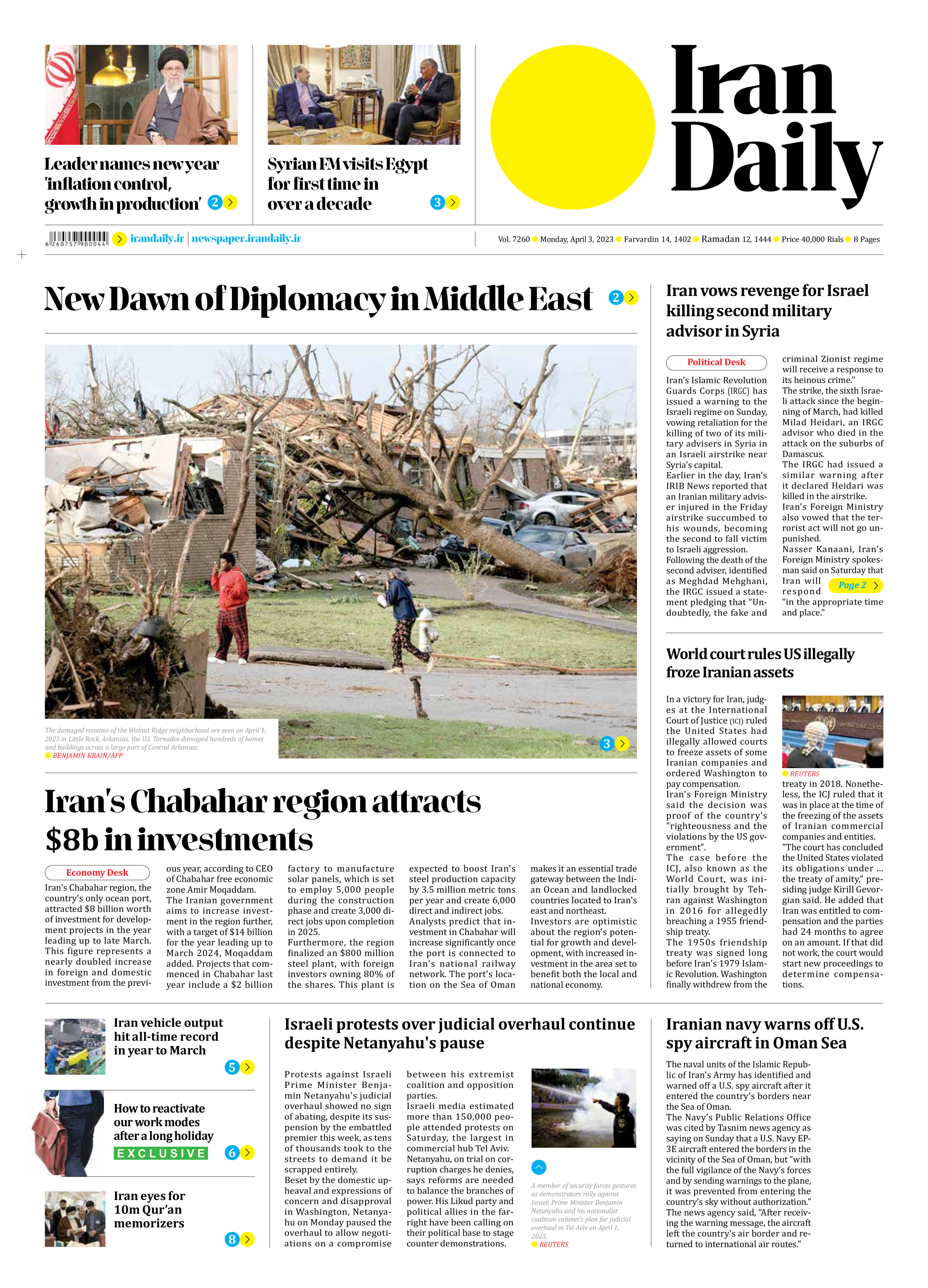
New Dawn of Diplomacy in Middle East
Ebrahim Behnam
Political expert
In the waning days of the last Iranian calendar year, the Middle East witnessed a remarkable and auspicious turn of events in diplomacy. The Islamic Republic of Iran and the Kingdom of Saudi Arabia, after seven years of diplomatic estrangement, have agreed to normalize their relations and to reopen their respective embassies. Similarly, there have been efforts to thaw the icy relations between Turkey and Syria. Moreover, a quadrilateral meeting of deputy foreign ministers from Turkey, Syria, Iran, and Russia is expected to take place soon, according to Iran's foreign minister.
On March 23, a Saudi diplomat announced that Riyadh has initiated talks with Damascus to resume providing consular services. On March 29, the Iranian Embassy in Iraq hosted the iftar ceremony of ambassadors of Muslim countries. Apart from the bilateral meeting between the ambassadors of Iran and Saudi Arabia, a tripartite meeting took place between the ambassadors of Iran, Saudi Arabia, and Syria, hosted by Mohammad Kazem Ale-Sadeq, the Iranian ambassador to Iraq.
On March 28, Iran's Foreign Minister Hossein Amir-Abdollahian was in Moscow, where he met with his Russian counterpart, Sergei Lavrov. The two sides discussed issues related to Syria, Palestine, the Caucasus, Yemen, and the Caspian Sea, in addition to their bilateral relations. Lavrov welcomed the recent agreement between Iran and Saudi Arabia, and Amir-Abdollahian announced in Moscow that Tehran and Moscow were in the final stages of examining the signing of a long-term strategic cooperation agreement. He also declared Iran's readiness to play a more significant role in establishing sustainable peace and comprehensive security in the Middle East. According to Amir-Abdollahian, the foreign ministers of Iran and Saudi Arabia will hold consultations soon to finalize the time and location of their official meeting.
Many countries in the region have expressed satisfaction with the developments of the past few weeks, particularly the Tehran-Riyadh agreement. They hope that this rapprochement between the two most important countries in the region will lead to greater stability, security, and prosperity in the Middle East. Nonetheless, there are countries or extra-regional powers that seem to view these positive diplomatic strides toward regional cohesion and stability as a threat to their interests. Sporadic Israeli attacks on parts of Syria plus the recent American attacks on the Arab country, as well as actions and claims of Iran's northwestern neighbor, namely Azerbaijan, are noteworthy in this context.
The Tehran-Riyadh agreement is a significant and momentous step that requires careful and intelligent management by both sides until the reopening of their embassies. Governments in the region, aware of the importance of this agreement and its potential to promote stability and security, have warmly welcomed it. They should also remain vigilant to the suspicious actions of extra-regional powers. The Middle East is now poised for positive developments, but steering these developments in the right direction requires rationality and common-mindedness among the governments in the region.







